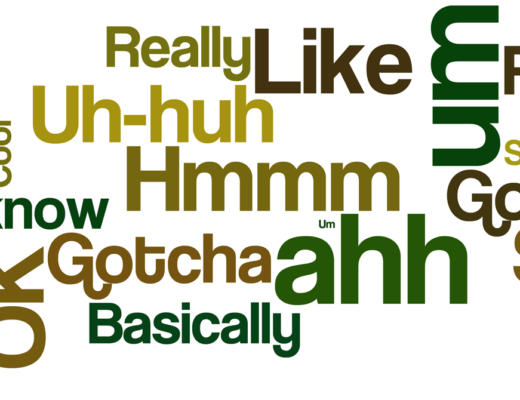‘As’ you like it
Good writing is strong, confident writing, but punchy nouns and verbs won’t move the story along without the cement of conjunctions. I often come across an instance of a weak conjunction (and not in an astrological sense) which spoils the effect of an otherwise strong sentence and can cause ambiguity or even confusion – a weak conjunction can cause an otherwise assertive sentence to snap in the middle.
There are basically three types of conjunction (coordinating, subordinating, and correlative), and the type depends on how it is being used (its role) in your sentence. An easy way to remember a list of conjunctions is to use the mnemonic FANBOYS (for, and, nor, but, or, yet, so), but there are other conjunctions, such as after, since, than, as, and because. Even the most common, the FANBOYS conjunctions, can be weak if they’re used ill-advisedly – such as using ‘for’ in a sentence such as ‘I need you to arrive early, for we need a chat before the meeting.’ This is a sentence dictated by one of my former employers thirty-odd years ago. He thought using for rather than because would elevate the language in his letter. Unfortunately, all it does is make a quite sensible sentence sound insipid.
I want to talk today about one particular word I often find being substituted for because – and being used unadvisedly in other contexts – the diminutive word as.
As is a tiny little word, but it’s in the top 1,000 most used words in the English language. According to Oxford Dictionaries [‘as’, Oxford Dictionaries. Oxford University Press. https://premium.oxforddictionaries.com/definition/english/as (accessed via Oxford Dictionaries Online on January 11, 2023)], as can be used as a preposition, an adverb, and a conjunction – in this sentence, it is used twice as a preposition (referring to the function or character of something). Merriam-Webster and Dictionary.com add pronoun to the list of its uses.
Let’s concentrate on the use of ‘as’ as a conjunction, in which case it can have as many as eight different roles. Staying with Oxford’s definition (cited above) it can be:
- used to indicate that something happens during the time when something else is taking place:
‘Frank watched him as he ambled through the crowd’
‘as she grew older, she kept more to herself’ - used to indicate by comparison the way that something happens or is done:
‘they can do as they wish’
‘she kissed him goodbye, as usual’- used to add or interject a comment relating to the statement of a fact:
‘as you can see, I didn’t go after all’
- used to add or interject a comment relating to the statement of a fact:
- because; since:
‘I must stop now as I have to go out’ - even though:
‘sweet as he is, he doesn’t pay his bills’
‘try as he might, he failed to pull it off’
Because as is such a common word, and has so many roles, I often find that there are many instances of the word – performing different functions – in the narrative as a whole, or even in just one sentence. One of its roles as a conjunction can be to indicate simultaneity or causality. Simultaneity is not usually a problem, as long as ‘as’ is at the beginning of the sentence, so
- ‘as it got colder, she shivered.’
Problems can arise, however, if the author decides to use as in the middle of the sentence. This is where causality comes into play and ill-considered ordering results in an unbalanced sentence. I often find authors writing something along the lines of ‘it got colder as she shivered’. The causality clearly doesn’t work here – it didn’t get colder because she shivered. To work correctly, the sentence needs to be written - ‘she shivered as it got colder’.
In case you are interested in whether, in these sentences, as acts as a coordinating or a subordinating conjunction, the answer is that in (i) above, as acts as a subordinating conjunction. In (ii), it acts as a coordinating conjunction, but that doesn’t really help us to understand sentence order unless you’re an expert grammarian.
Here is another example of an imbalance occurring if the positioning of phrases surrounding as is wrong. This is a made-up sentence of similar construction to some I see regularly: ‘The passageway narrowed as she tried to curb her speed.’ The sentence as shown reads that the passage narrowed in response to her speed, but the meaning is that she slowed down/curbed her speed because the passage narrowed. It would need to be amended to ‘She tried to curb her speed as the passageway narrowed.’
If the rhythm of the sentence in a novel is compromised by changing the order of phrases, a simple and effective solution is simply to change as to and.
Using ‘as’ as a conjunction to mean ‘because’ can result in a weak and insipid feel to a sentence, especially since in complex sentences you may require it in one of its other guises. And people use it far less often than you would think in conversation in this context. If you have been chatting to a friend over coffee and check your watch to find it’s nearly time to collect your child from school, you are more likely to say ‘I’m sorry, I have to go because/’cos I have to pick up Sam’ than ‘I’m sorry, I have to go as I have to pick up Sam.’ If you were writing an informal text, though, you might find yourself using as instead of because simply because it has fewer letters and is quicker to type.
I have a (casually tested) theory: authors use as to mean because in their novels – even in dialogue – because of the prevalence of the word in social media and even mainstream media. It is ubiquitous in the socials because (or as) it takes up less space and takes less time to type – go and have a look at your news feeds and you’ll see what I mean.
The use of ‘as’ as a catch-all is now becoming widespread in mainstream media. I saw a ticker crawler a few days ago on the morning news of a major channel. It wasn’t a very pleasant story, but what it said was ‘3.2 million people had their energy cut off last year after running out of credit as ministers are being urged to stop the forced installation of prepayment meters.’ I confess to being baffled as to what the intended purpose of as was in that sentence.
As can be a pesky little word – but a very important one. Sometimes even the smallest words can make or break a sentence. Think about this when you are writing and make sure your conjunctions work as effectively as your prose.
Perfect the Word: polishing your prose; keeping it yours.




